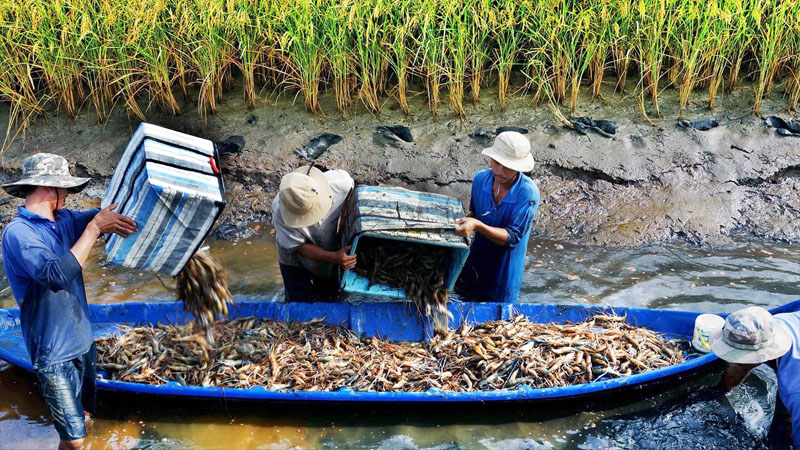
The rice-shrimp cultivation area of Thoi Binh district in Vietnam’s Mekong Delta has achieved a notable milestone by securing Best Aquaculture Practices (BAP) certification from the Global Aquaculture Alliance (GAA). This certification is not merely a badge of honor; it marks the first instance of such recognition for an aquatic farming establishment in Vietnam, setting a benchmark for sustainable practices in the region.
Economic Gains for Farmers
Local farmer Vo Van Duoc, who has participated in the BAP project for two years, reports significant economic benefits. His family’s earnings have surged to VND 80 million (USD 3,200) per hectare annually, a compelling testament to the project’s viability.
Nguyen Phi Thoang, Vice Chairman of the People’s Committee of Bien Bach Dong commune, confirms that the initiative has demonstrably improved incomes while also aiding in climate change adaptation.
Community Engagement and Future Expansion
The project currently involves 321 households, cultivating over 696 hectares. Plans are afoot to expand this area to around 2,000 hectares, reflecting a robust engagement from the community.
Nguyen Hoang Boa, Vice Chairman of the People’s Committee of Thoi Binh district, underscores the region’s potential for shrimp-rice cultivation. He notes that BAP certification will facilitate sustainable farming practices that mitigate environmental damage while ensuring social benefits.
Navigating Aquaculture Standards
Vietnam’s aquaculture landscape is governed by a variety of standards, including SQF, GlobalGAP, ASC, BAP, Naturland, AquaGAP, and VietGAP. Among these, ASC, GlobalGAP, and BAP are particularly critical for shrimp exports.
A representative from the German Agency for International Cooperation (GIZ) points out that these standards focus on food hygiene, disease control, environmental protection, social equity, and product traceability—essential elements for securing access to demanding international markets.
Expanding Global Horizons for Ca Mau Shrimp
The BAP certification not only enhances the credibility of Ca Mau shrimp but also opens doors to lucrative markets worldwide. The GAA, with over 1,100 members in 70 countries, stands as a formidable entity in the global seafood sector.
A representative from Minh Phu company, involved in the project’s execution, highlights that the certification enables the procurement of BAP-certified shrimp at prices exceeding market rates, thereby incentivizing local producers. This is a golden opportunity to elevate the profile of Ca Mau shrimp in international arenas where quality standards are stringent.